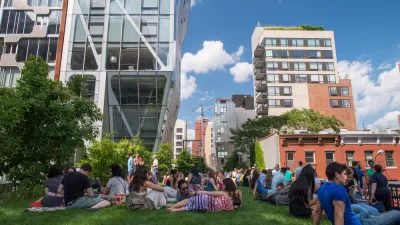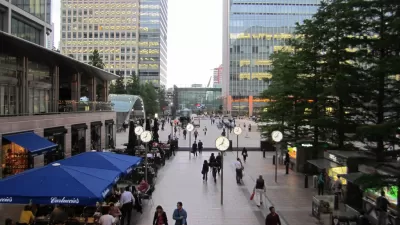A few regions have hoarded the growth of the tech innovation economy. A Brookings paper argues that Congress can help distribute tech innovation in growth centers around the Heartland of the United States.

A Brookings study bases recommendations for a federal program for tech industry growth on the data that shows just five metropolitan areas—Boston, San Francisco, San Jose, Seattle, and San Diego—"accounted for more than 90% of the nation’s innovation-sector growth during the years 2005 to 2017."
"The future of America’s economy lies in its high-tech innovation sector, but it is now clear that same sector is widening the nation’s regional divides," according to a Brookings article by Robert D. Atkinson, Mark Muro, and Jacob Whilton.
"Based on 'winner-take-most' network economies, the innovation sector has generated significant technology gains and wealth but has also helped spawn a growing gap between the nation’s dynamic 'superstar' metropolitan areas and most everywhere else," according to the article, to follow up on the point about widening divides.
So how does the trio suggest that tech innovation centers can be rolled out across the United States to the benefit of more people and places? Think of a New New Deal, of sorts: "Specifically, the nation needs—as one initiative among others—a massive federal effort to transform a short list of 'heartland' metro areas into self-sustaining 'growth centers' that will benefit entire regions."
The article is written to promote a new paper that proposes additional, specific actions to further that purpose. The article linked here includes more detail and data on the challenges facing the uneven integration of the tech sector into the fabric of communities around the country.
For instance, place-based interventions will be essential to achieve a more equal region distribution of tech industry growth. This challenge can't be left to the market alone, according to the article.
A separate article by Cat Zakrewski provides commentary and analysis of the Brookings pitch for growth centers.
FULL STORY: The case for growth centers: How to spread tech innovation across America

Maui's Vacation Rental Debate Turns Ugly
Verbal attacks, misinformation campaigns and fistfights plague a high-stakes debate to convert thousands of vacation rentals into long-term housing.

Planetizen Federal Action Tracker
A weekly monitor of how Trump’s orders and actions are impacting planners and planning in America.

In Urban Planning, AI Prompting Could be the New Design Thinking
Creativity has long been key to great urban design. What if we see AI as our new creative partner?

King County Supportive Housing Program Offers Hope for Unhoused Residents
The county is taking a ‘Housing First’ approach that prioritizes getting people into housing, then offering wraparound supportive services.

Researchers Use AI to Get Clearer Picture of US Housing
Analysts are using artificial intelligence to supercharge their research by allowing them to comb through data faster. Though these AI tools can be error prone, they save time and housing researchers are optimistic about the future.

Making Shared Micromobility More Inclusive
Cities and shared mobility system operators can do more to include people with disabilities in planning and operations, per a new report.
Urban Design for Planners 1: Software Tools
This six-course series explores essential urban design concepts using open source software and equips planners with the tools they need to participate fully in the urban design process.
Planning for Universal Design
Learn the tools for implementing Universal Design in planning regulations.
planning NEXT
Appalachian Highlands Housing Partners
Mpact (founded as Rail~Volution)
City of Camden Redevelopment Agency
City of Astoria
City of Portland
City of Laramie





























